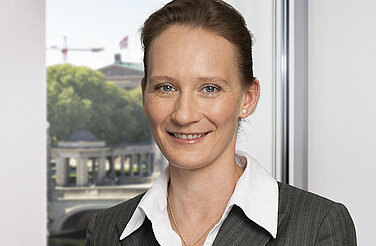This content is also available in: German
Saving electricity as a business model
A new recommendation from Agora Energiewende: Municipal utilities and other energy companies should receive incentives to help customers install energy-efficient devices.
In the future, municipal utilities and other power providers shouldn't just sell electricity – they should also sell ways to save electricity. This is the core idea of a business model presented recently by Agora Energiewende. It could be a building block that allows Germany to realize its national and European goals for reducing electricity consumption. Since June, Germany's federal government is required to present to the EU Commission a national energy efficiency action plan that will allow Germany's energy consumption to be reduced by at least 1.125% per year until 2020.
The recommendation foresees granting subsidies to municipal utility companies and energy providers – as well as communal actors – when devices that consume a lot of electivity such as heat pumps and light bulbs are replaced on a large scale with more efficient models. Under the proposal, households and companies wouldn't have to pay the full cost of the replacement, but a reduced amount instead. "Tendering systems should be used to determine which companies should be contracted with carrying out energy efficiency measures", says Dr. Patrick Graichen, Director of Agora Energiewende. "This will assure that efficiency measures are carried out in the most cost-effective way."#
If energy companies were to offer energy efficiency services, this would also help them to make up for declining profits from the sale of electricity. "This would lead to a real win-win-win situation", Graichen emphasizes. "Electricity consumers could lower their electricity bills thanks to more efficient technology, energy companies would benefit from a broader market position thanks to new sources of revenue, and, thanks to energy savings, CO2 emissions would be lowered and society as a whole would need to invest less in infrastructure and power plants."
According to the proposal, the required subsidies would be financed from the same fund used now to subsidize particularly efficient power plants (i.e. combined heat and power, or CHP, plants). Currently, consumers pay a "CHP levy" (KWK-Umlage), which is set at 0.181 euro cents/kWh. With the integration of energy efficiency measures, the CHP levy would be transformed into an "efficiency levy" and would be increased for a number of years by 0.3 euro cents/kWh. For the average 3-to-4 person household with an annual consumption of 3,500 kWh, this would mean costs of 10.50 euros per year. At the same time, however – considering current electricity prices the replacement of ten 50-watt bulbs with LED bulbs would allow 175 euros in annual electricity costs to be saved.
In addition to recommendations for implementation in the power sector, the study "Energy Efficiency as a Business Model" contains recommendations for the building sector. Taken together, these proposals would allow a 20% reduction in electricity consumption to be realized by 2020. Thus, for the very first time, the study bundles together a range of recommendations, offering an integrated energy efficiency roadmap. "This should allow energy efficiency to achieve the broadest possible acceptance. By spotlighting this issue, the study promises to rescue energy efficiency from the margins of the policy debate. Against the backdrop of the EU Energy Efficiency Directive and the German government's Energy Efficiency Action Plan, there is a pressing need to reinvigorate the discussion," says Graichen.
The study, availabe in German, was undertaken by the Institute for Energy and Environmental Research (IFEU) as well as LBD-Beratungsgesellschaft mbH.

